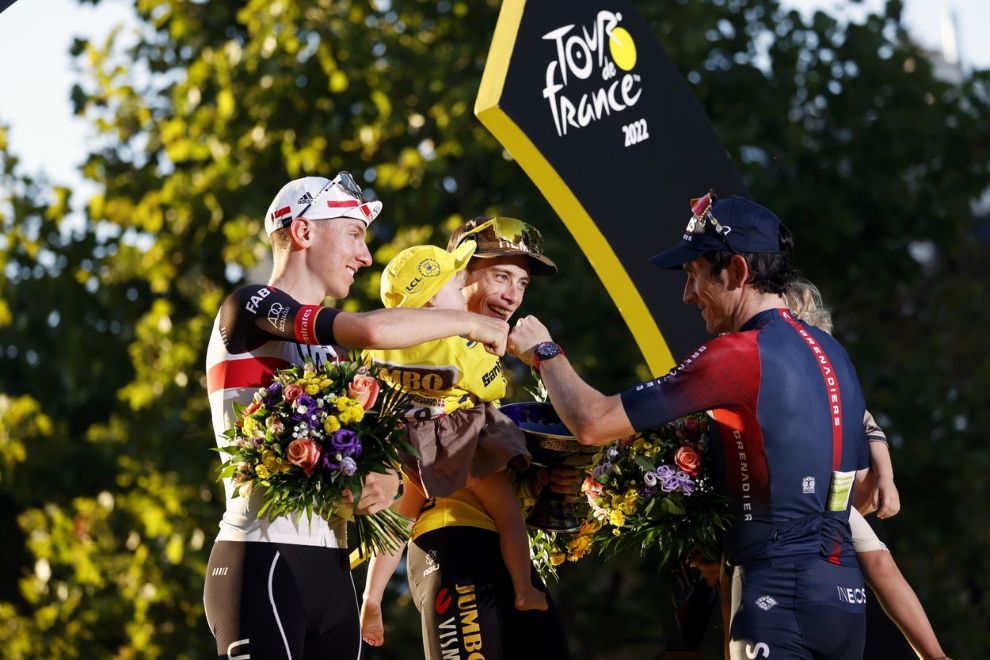To get more granular, Bernal was 22 when he won the 2019 Tour de France and 24 when he won last year’s Giro. Pogačar was 21 when he won the first of his two Tour de France yellow jerseys, and two other jerseys as well (King of the Mountains and young rider); he repeated this feat at age 22. Evenepoel was 22 when he won this year’s Vuelta a España and, two weeks later, the UCI World Road Race Championship. Vingegaard was 25 when he won this year’s Tour and Hart was the same age when he won a surprise victory in the 2020 Giro.
That’s a lot of riders winning a lot of major races at a very young age. And you can add to that riders like Wout van Aert who have not won a Grand Tour but have won Grand Tour stages and were influential in Grand Tour races in their early 20s. In fact, young riders seem to have taken over the sport. And it also seems that every year, another young rider explodes on the scene. This year, for example, it was Vingegaard and Evenepoel. If we look ahead to next year, it seems that the major trophies will be fought out among Bernal, Pogačar, Evenepoel and Vingegaard. Is this an actual trend and how long has it been going on?
According to a study carried out by VeloNews, cycling’s youth movement actually began in 2015 and “virtually exploded” since the emergence of Egan Bernal in 2017 when he won Sibiu Cycling Tour, the Tour de Savoie Mont Blanc and the Tour de l’Avenir. “It gained momentum in 2019 when 20-year-old Tadej Pogačar won the final Tour of California, and when Bernal claimed the Tour de France’s podium later that summer, at only 22 years of age,” VeloNews wrote. “Younger talents weren’t just being developed by top teams; rather, the talent had already arrived on the world stage.”
Why have young riders suddenly become the stars and not, as they had been, apprentices to their elders until they had learned the trade well enough to become stars themselves? One reason is certainly that there are more young cyclists in general. There has been a boom for at least a decade in people riding bikes as part of a new mobility strategy to reduce pollution in urban areas and as part of their personal fitness programs. This trend looks likely to continue because the Covid epidemic led to another boom of bike sales around the world, as people sought to avoid catching the virus.
Another reason may be that as these new cyclists became interested in the sport, they began purchasing high-level equipment to improve their performances. As a result, these products – power meters, indoor bike trainers, fitness trackers, etc. – became less expensive, and therefore more accessible. This made it possible for riders to become good riders at an early age. In addition, these young cyclists would have been aware of the best sport science practices, such as what to eat to improve their performances, so that when they decided to become professional road racers, they were far more prepared – and fitter – than their elders had been at the same age.
Finally (and this might be a stretch), professional cycling teams needing to cut their budgets to survive may have taken some of these young riders on and let their more expensive, older riders go. It’s almost certain now, though, that as more young riders make it big on the world stage, more teams will be looking to sign up the next Tadej Pogačar or Remco Evenepoel as early as possible and that the age of Grand Tour winners will continue to decline. So we have to ask: When will the first teenager win the Tour de France?




